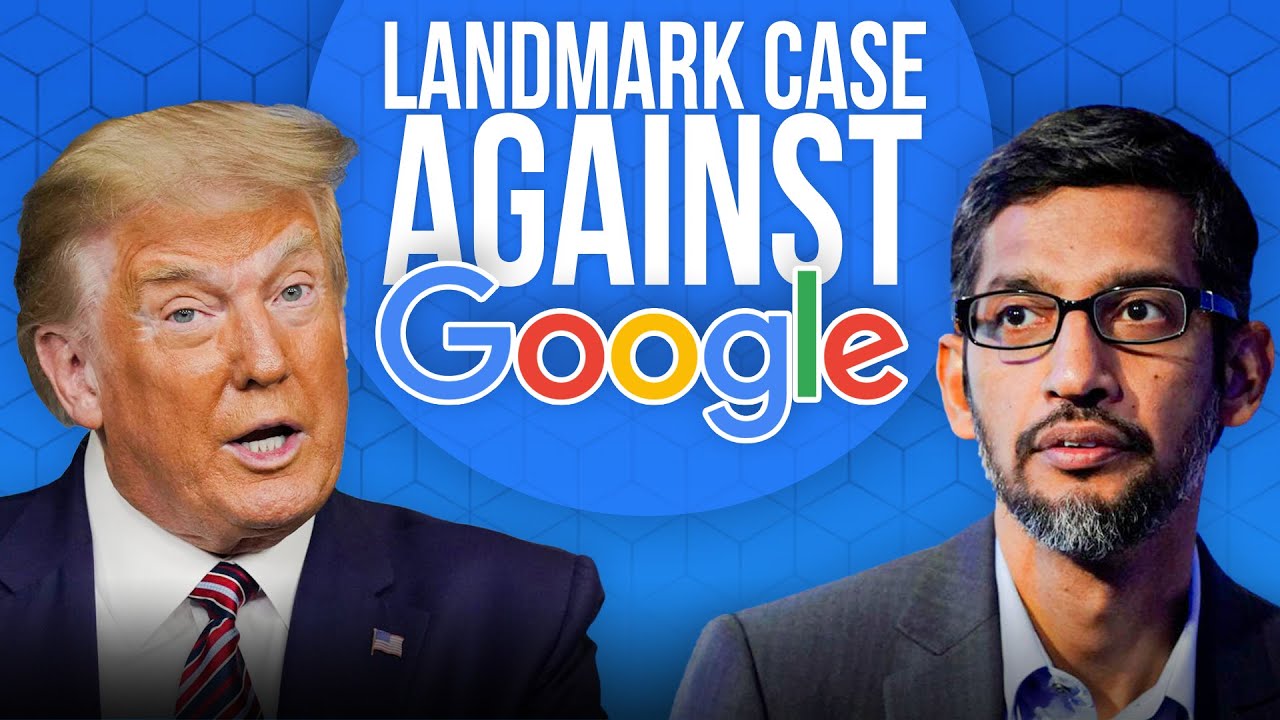FTC Vs. Meta: Instagram And WhatsApp Antitrust Case Explained

Table of Contents
The FTC's Case Against Meta: A Monopoly in Social Media?
The FTC's central argument is that Meta's acquisitions of Instagram in 2012 and WhatsApp in 2014 were anti-competitive maneuvers designed to stifle innovation and harm consumers. The commission alleges that Meta, already a dominant player in social networking with Facebook, used its power to eliminate potential competitors before they could gain significant traction. This, the FTC argues, resulted in a de facto monopoly, limiting consumer choice and potentially leading to higher prices or reduced innovation.
- Suppression of Competition: The FTC claims Meta used its considerable resources and influence to prevent Instagram and WhatsApp from developing into serious rivals to Facebook. They argue that Meta could have chosen to compete directly, but instead opted for acquisition to eliminate the threat.
- Reduced Innovation: Without robust competition, the FTC argues that Meta had less incentive to innovate and improve its products. The lack of competitive pressure, they contend, resulted in a less dynamic and innovative social media market.
- Specific Examples: The FTC likely pointed to specific instances where Meta allegedly leveraged its market dominance to harm competitors, perhaps by limiting their access to data or resources, though details are often subject to legal discovery processes.
Meta's Defense: Acquisitions Spurred Innovation and Consumer Benefits
Meta vehemently denies the FTC's allegations, arguing that the acquisitions of Instagram and WhatsApp benefited both users and the broader competitive landscape. Their defense centers on the idea that the integrations enhanced the user experience and spurred innovation across all three platforms.
- Innovation and Integration: Meta highlights the significant feature improvements and cross-platform functionalities that arose from integrating Instagram and WhatsApp into its ecosystem. They point to features like cross-posting capabilities and streamlined messaging as examples of this synergistic innovation.
- Increased User Choice and Benefits: Meta counters the notion of reduced choice by pointing to the vast array of features and services offered across its platforms, benefiting users with diverse preferences and needs. They argue that users actively choose to use these platforms, demonstrating the inherent value they offer.
- Competitive Market: Meta rejects the characterization of a social media monopoly, arguing that a dynamic and competitive market exists with various platforms catering to diverse user needs and demographics. They argue that other social media companies are vigorous competitors and continue to thrive.
Key Legal Arguments and Precedents
The legal battle hinges on the interpretation of antitrust laws, specifically focusing on whether Meta's acquisitions substantially lessened competition. The FTC bears the burden of proving that the acquisitions violated antitrust statutes, such as the Clayton Act, which prohibits mergers and acquisitions that may substantially lessen competition.
- Legal Statutes: The FTC's case likely relies on sections of the Clayton Act and other relevant antitrust legislation. A core argument would focus on the definition of the relevant market and the impact of the acquisitions on competition within that market.
- Relevant Precedents: Both sides will undoubtedly cite past antitrust cases as precedents to bolster their arguments. Cases involving similar acquisitions in other industries will be relevant to the court's decision-making process.
- Potential Penalties: If the FTC prevails, Meta could face significant penalties, including divestiture (being forced to sell Instagram and/or WhatsApp), substantial fines, or other regulatory actions that could reshape its business operations.
The Impact on the Future of Social Media
The outcome of the FTC vs. Meta case will significantly influence the future of social media and the tech sector at large. The decision could set a crucial precedent for future mergers and acquisitions, especially within the highly concentrated tech industry.
- Regulatory Oversight: A ruling against Meta could lead to increased regulatory scrutiny of tech giants and their acquisitions. This may involve stricter antitrust enforcement and potentially new regulations to prevent future monopolistic practices.
- Consumer Impact: The consequences for consumers could include changes in pricing, features, or data privacy practices depending on the court's decision and any subsequent regulatory actions.
- Smaller Competitors: A favorable ruling for the FTC could empower smaller social media companies, fostering a more competitive and diverse landscape. This could lead to more innovation and potentially more choices for social media users.
Conclusion: The FTC vs. Meta Case: What's Next and Its Significance for the Future
The FTC vs. Meta case represents a crucial battleground in the ongoing debate about the power and influence of tech giants. The FTC's allegations of anti-competitive behavior, countered by Meta's claims of innovation and consumer benefit, highlight the complex interplay between technological advancement and competition policy. The ultimate outcome will have far-reaching implications for the future of social media regulation, the competitive landscape, and consumer choice. Stay informed about the ongoing FTC vs. Meta antitrust case and its implications for the future of social media by following updates and engaging in discussions regarding the FTC vs. Meta antitrust case, Instagram and WhatsApp antitrust issues, or social media competition.

Featured Posts
-
 Erzurum Okullar Tatil Mi 24 Subat Pazartesi Son Dakika Okul Durumu Ve Valilikten Aciklama
Apr 23, 2025
Erzurum Okullar Tatil Mi 24 Subat Pazartesi Son Dakika Okul Durumu Ve Valilikten Aciklama
Apr 23, 2025 -
 Florida Condo Owners Selling Reasons Behind The Rush
Apr 23, 2025
Florida Condo Owners Selling Reasons Behind The Rush
Apr 23, 2025 -
 Record Breaking Game Yankees Hit 9 Home Runs Judges 3 A Highlight
Apr 23, 2025
Record Breaking Game Yankees Hit 9 Home Runs Judges 3 A Highlight
Apr 23, 2025 -
 Brewers Record Setting Nine Stolen Bases Lead To Dominant Win Against As
Apr 23, 2025
Brewers Record Setting Nine Stolen Bases Lead To Dominant Win Against As
Apr 23, 2025 -
 Tigers Vs Brewers Detroit Suffers 5 1 Defeat Second Series Loss
Apr 23, 2025
Tigers Vs Brewers Detroit Suffers 5 1 Defeat Second Series Loss
Apr 23, 2025
